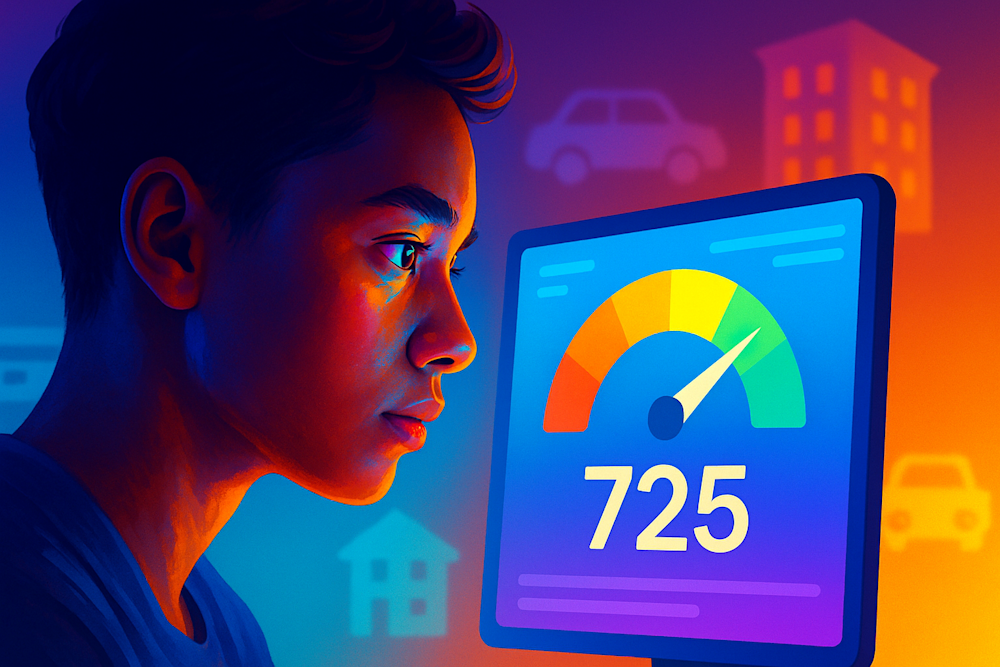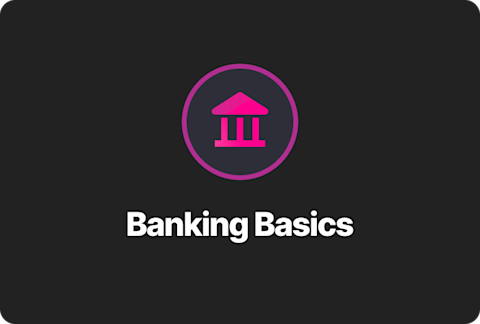Does a Hard Credit Check Affect Your Credit Score? What You Need to Know (2025 Guide)

You’re ready to apply for a credit card, rent your first apartment, or maybe even finance your first car. But then someone hits you with the warning: "Careful, that’s a hard credit check. It might hurt your score."
Wait, what? 😳 Don’t worry, we’ve got you. In this post, we’re breaking down exactly what a hard credit check is, how it affects your score, and how to keep your credit looking strong, even if you’re just getting started.
What Is a Hard Credit Check?
A hard credit check, also called a hard inquiry, happens when a lender pulls your full credit report to decide whether to lend you money. This typically occurs when you apply for a credit card, finance a car, take out a personal loan, or rent an apartment. These checks signal that you’re actively seeking credit.
A soft credit check, on the other hand, doesn’t impact your credit score. These are used for things like pre-qualifying for a loan, background checks, or reviewing your own credit report. So if you’ve ever asked, “What is a hard credit check?” It's essentially a deeper look into your credit history that helps lenders evaluate your financial responsibility.
What Does a Hard Credit Check Show?
A hard credit check gives lenders a snapshot of your financial behavior. It includes:
Your credit score
Total debt you owe
Your credit utilization (how much of your available credit you're using)
Your payment history, including whether you pay on time
This information helps lenders decide whether to approve your application and what terms to offer.
Does a Hard Credit Check Affect Your Credit Score?
Yes, a hard credit check can affect your credit score, but the impact is usually small and temporary.
According to FICO, one hard inquiry generally lowers your score by fewer than five points. Larger drops are uncommon and typically happen when multiple changes occur at once like applying for several new accounts, taking on more debt, or reducing your average account age.
In other words, a hard inquiry by itself won’t wreck your score. Just avoid applying for too much new credit at once, especially if you’re actively trying to build credit.
How Long Does a Hard Credit Check Affect Your Credit Score?
You’ll usually see the effect of a hard inquiry within a few days. The small drop in your score often lasts between three to six months, as long as the rest of your credit activity remains solid.
Hard inquiries stay on your credit report for two years, but they only influence your credit score for a few months. After that, they’re still visible to lenders but don’t impact your score anymore.
How Long Do Hard Credit Checks Stay on Your Report?
Let’s clarify the timing:
Impact on your score: a few months
Visible on your credit report: up to two years
Even though hard inquiries are listed for two years, most scoring models only consider those from the past 12 months. Their actual effect on your score fades much faster.
Hard vs. Soft Credit Checks: What’s the Difference?
Hard and soft credit checks both involve pulling your credit information, but they serve different purposes and have different effects. A hard credit check happens when you apply for something like a loan, credit card, or apartment lease. It can lower your credit score slightly and stays on your credit report for up to two years. A soft credit check, on the other hand, doesn’t affect your score and usually isn’t visible to lenders. These occur when you check your own credit, get pre-qualified for a loan, or go through a background check. The key difference is that hard checks can impact your credit score, while soft checks do not.
Common Situations Where Hard Credit Checks Happen
You might be wondering, "Do apartments do hard credit checks?" Sometimes, yes, especially if a landlord or leasing company wants to review your full credit report.
Other situations where you might face a hard credit check include:
Applying for a car loan or lease
Opening a credit card
Taking out a personal loan
Applying for a mortgage
One hard inquiry won’t damage your score. The issue arises when you rack up several inquiries in a short period.
How to Minimize the Impact of Hard Inquiries
Hard inquiries don’t have to be a big deal. Here are a few ways to keep your score in good shape:
Avoid applying for multiple credit cards or loans back to back
Use pre-qualification tools, which only require soft checks
Space out your applications so inquiries don’t pile up
Use tools like Step’s secured credit card or credit-building app to establish credit safely
Being thoughtful about when and where you apply can help you maintain a strong score over time.
Final Thoughts: Do Hard Credit Checks Matter in the Long Run?
One or two hard credit checks won’t ruin your score.
Credit is a long game. What matters more is whether you pay your bills on time, keep your balances low, and stay consistent. A hard check is just a small bump in the road that may be necessary on your journey, not a dead end.
If you’re just starting out, check out Step’s guide to understanding credit scores to learn more.








